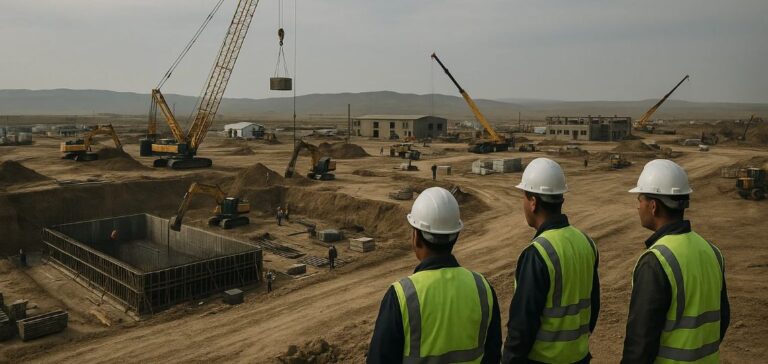Uzbekistan has commenced preparatory work on support buildings for its first small modular nuclear reactor project in the Jizzakh region. These facilities include industrial and administrative structures, along with warehouses and large-scale assembly workshops required throughout the duration of the project.
A structured Russo-Uzbek partnership since 2024
The project stems from a contract signed in May 2024 during the official visit of Russian President Vladimir Putin to Uzbekistan. It involves the construction of a 330 megawatt nuclear power plant based on six units of the RITM-200N pressurised water reactor. This model is adapted from the technology used aboard Russian nuclear icebreakers, offering a thermal output of 190 megawatts and an electrical capacity of 55 megawatts. Each unit is designed for a service life of 60 years.
Staggered timeline and proven technologies
The first reactor is scheduled to reach criticality by the end of 2029, with subsequent units entering operation in stages. This represents the first export contract for the Russian technology. A land-based version of the RITM-200N is already under construction in Yakutsk, Russia, with commissioning planned for 2027. Rosatom, the Russian state nuclear corporation overseeing the initiative, highlights the use of combined active and passive safety systems to ensure high safety standards.
Project leaders’ statements
Pavel Bezrukov, Vice President and Director of the Nuclear Power Plant Construction Project in the Republic of Uzbekistan at Atomstroyexport JSC, stated that documentation work is ongoing. He emphasised that the initiative draws on decades of experience operating Russian-designed reactors and will guarantee a stable electricity supply for Uzbekistan for decades to come.
Otabek Amanov, Deputy Director of the Directorate for Nuclear Power Plant Construction, underscored the compactness and efficiency of the technology, developed from long-term, incident-free operations. According to him, the RITM-200N is a suitable solution for the region’s sustainable energy needs.
Background and outlook for Uzbekistan’s nuclear programme
Uzbekistan signed an agreement in 2017 with Russia to build two VVER-1200 pressurised water reactors. Separate discussions remain ongoing for the potential development of a large-scale nuclear power plant with an estimated capacity of around 2.5 gigawatts, to complement the modular reactor deployment.






















